Whether you’re from another state or a resident of Florida, helping your loved one choose a drug addiction treatment center is not an easy task. Beachcomber Family Center for Addiction Recovery is an example of an excellent drug rehab center in Delray Beach.
Choosing between inpatient and outpatient treatment should be one of the first considerations when selecting the appropriate form of addiction drug addiction treatment center. Making the decision to attend rehab can become simpler by learning as much as you can about these types of addiction treatment facilities.
Facilities for inpatient or residential addiction treatment offer comprehensive drug abuse care while patients live on-site around the clock, allowing them to concentrate completely on their recovery during that time.
Family members or loved ones with very serious addictions and addiction-related problems frequently seek inpatient treatment, people in a wide range of situations can benefit greatly from this type of setting. For people who would rather stay at home and attend substance abuse treatment sessions multiple days a week at the rehab center, there are also outpatient treatment options available.
Detox Facilities
A period of detoxification is frequently incorporated into the first stage of inpatient therapy -this is called detox. As a result of their physical dependence on the substance(s) they previously used, many people will experience withdrawal symptoms at this point.
The purpose of detoxification is to control the frequently unpleasant and potentially harmful effects of abruptly stopping alcohol and some medications or drugs. The initial withdrawal symptoms from these drugs can be extremely dangerous or even fatal. For those under these circumstances, detox under medical supervision at a specialized detox facility offers the safest and most effective environment in which to start the recovery process.
Inpatient Drug Rehab
The majority of inpatient or residential drug addiction treatment centers, like Beachcomber drug rehab Delray Beach, consist of therapy efforts to address the fundamental causes and maladaptive behaviors that underlie the compulsive abuse of drugs and alcohol once the withdrawal has been satisfactorily controlled during detox. This stage of recovery frequently includes a number of counseling sessions, peer support, and, if necessary, medical care. The majority of inpatient treatment programs customize care to meet the needs of specific patients, modifying care based on what will benefit the patient best at any given stage of their recovery. Traditionally, the second stage of inpatient recovery involves treating the psychological component of drug and alcohol addiction.
Holistic addiction treatment programs use a whole-body approach to therapy and frequently incorporate several natural therapies to support sobriety, happiness, and general health. Only women or men can receive addiction treatment at gender-specific detox facilities. Teen rehabilitation programs target the particular difficulties that youths encounter, and religious or faith-based facilities incorporate different religious concepts into their treatment modalities.
Outpatient Drug Rehab
There are various kinds of outpatient care or IOP options, just like there are for inpatient programming. The specific course of action can change depending on the kind and extent of services offered. The duration of Intensive outpatient programs varies based on the patient’s particular needs. The appropriate drug rehab in Deray Beach should be chosen for the patient based on the nature and extent of the addiction, its duration, the patient’s health, and his or her obligations in life. For instance, some rigorous outpatient programs might span from two months to a year and may need 9 to 20 hours of weekly treatment participation.
The duration of outpatient programming varies based on the patient’s particular needs.
Some of the same treatment techniques used in inpatient programs are also used in outpatient rehabilitation, including medication-assisted treatment, support groups, individual and group therapy, and life skills classes.
Long-term Drug Rehab Long-Term Drug Rehab
After a patient has finished their Residential, PHP-Partial Hospitalization, IOP-Intensive Outpatient, and/or OP-Outpatient Program, they may continue to get extended care. These continuing outpatient programs and extended-care treatment centers where patients reside are used to carry out these long-term recovery efforts. Many patients decide on an extended-care option to sustain their sobriety throughout the rest of their lives.
To supplement someone’s long-term care, sober-living facilities offer somewhat flexible living conditions. Prior to going back home, sober-living facilities provide a supportive environment that enables residents to reintegrate into society without using drugs.
The term “long-term rehab” refers to traditional treatment that necessitates a substantially longer stay, typically lasting between 6 and 12 months.
For those with serious addictions and for those who struggle with relapse on a regular basis, extended care in the form of long-term rehabilitation may be most beneficial.
Patients who are in recovery might acquire new ways of thinking and act by using a systematic therapy program. These adjustments will help patients become more conscious of their prior conduct and assist them in making strategies to keep from relapsing into the harmful behaviors and addictions that initially led them to seek treatment. It is critical that addiction therapy be both structured and encouraging as patients advance through their recovery and relapse prevention efforts while remaining flexible enough to fit specific individual needs.
If you have a loved one or family member that needs drug rehab in Delray Beach, Florida- reach out to us at Beachcomber Family Center For Addiction Recovery for more information.

